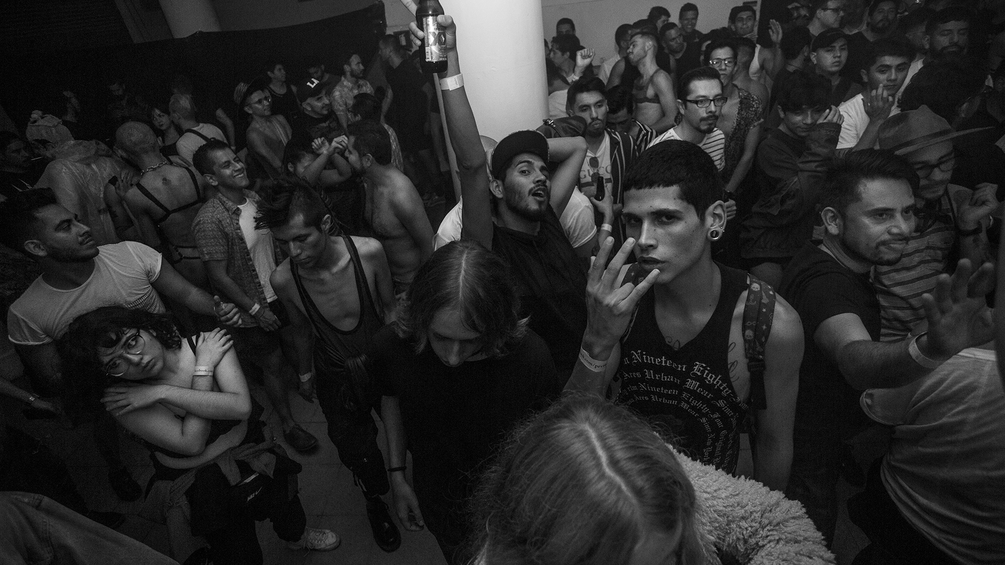
Inside Mexico City’s vibrant electronic underground
It’s a warm January night in Mexico City. Midnight on a Saturday is relatively early to go out here, and the streets of the Juárez neighbourhood are comparatively quiet. As the taxi drives closer to its destination at Sevilla 30, the faint sound of bass begins to resonate down the street, and a line has formed outside an unassuming door close by. As we enter the building, a lift takes us up to the sixth floor. It’s the uppermost floor of the building, with an open roof terrace that faces the city skyline, and the place is heaving. The first thing you notice is the atmosphere; the dancefloor is packed and there’s a certain energy in the crowd — a buzz.
There’s a real sense of togetherness here, like the meeting of old friends. At the bar there’s uplifting chatter in Spanish, French, English and other languages. On the dancefloor people are together, but there are also many dancing alone, enjoying their own element. The sound system is warm and punchy. Tonight the party is a matinée that started at 6pm and will flow into the early hours of the morning. The night is run by Capricho, a well-respected and much-loved party that’s become known over the years for interesting off-locations and quality bookings. They’ve built up a strong and loyal community in Mexico’s capital city, and when brought together, it feels like a family.
For the matinée they collaborated with TARABEVA, a collective based in Querétaro, a city about three hours’ drive north-west from Mexico City. As 8am draws near, the party finally comes to a close. The sun has risen again. As the final record plays out, whoops and cheers echo from the dancefloor and people hug their goodbyes, some going home and others in search of the afterparty.
Capricho is part of a supportive network of clubs, promoters, studios, labels and record shops helping to push underground electronic music in Mexico City. With a wide network of micro scenes proudly pushing an eclectic music policy, regularly seeing parties thrown in unusual locations, and with a thriving queer scene, it’s centred around building communities by supporting both local and international artists. Ultimately, Mexico City’s vibrant underground electronic music scene celebrates collaboration and individuality — as clubs, parties, collectives and artists continue to emerge.





